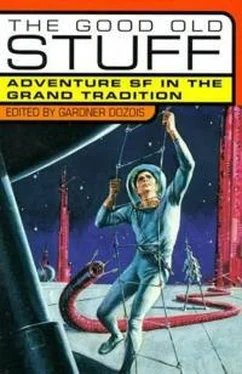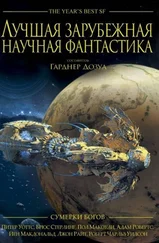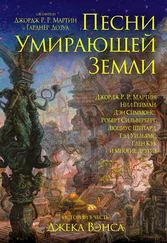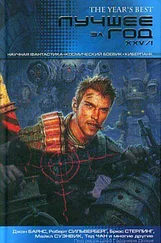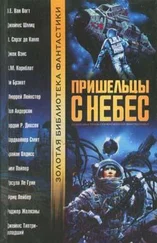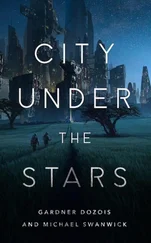Гарднер Дозуа - The Good Old Stuff
Здесь есть возможность читать онлайн «Гарднер Дозуа - The Good Old Stuff» весь текст электронной книги совершенно бесплатно (целиком полную версию без сокращений). В некоторых случаях можно слушать аудио, скачать через торрент в формате fb2 и присутствует краткое содержание. Год выпуска: 1998, ISBN: 1998, Издательство: St. Martin's Griffin, Жанр: Фантастика и фэнтези, на английском языке. Описание произведения, (предисловие) а так же отзывы посетителей доступны на портале библиотеки ЛибКат.
- Название:The Good Old Stuff
- Автор:
- Издательство:St. Martin's Griffin
- Жанр:
- Год:1998
- ISBN:0-312-19275-4
- Рейтинг книги:3 / 5. Голосов: 1
-
Избранное:Добавить в избранное
- Отзывы:
-
Ваша оценка:
- 60
- 1
- 2
- 3
- 4
- 5
The Good Old Stuff: краткое содержание, описание и аннотация
Предлагаем к чтению аннотацию, описание, краткое содержание или предисловие (зависит от того, что написал сам автор книги «The Good Old Stuff»). Если вы не нашли необходимую информацию о книге — напишите в комментариях, мы постараемся отыскать её.
The Good Old Stuff — читать онлайн бесплатно полную книгу (весь текст) целиком
Ниже представлен текст книги, разбитый по страницам. Система сохранения места последней прочитанной страницы, позволяет с удобством читать онлайн бесплатно книгу «The Good Old Stuff», без необходимости каждый раз заново искать на чём Вы остановились. Поставьте закладку, и сможете в любой момент перейти на страницу, на которой закончили чтение.
Интервал:
Закладка:
Grunting, Sitka Pete arose and took up his duties as advanced point of a combat team. Sourdough trailed, swinging widely to one side and another. Huyghens and Roane moved together. Faro Nell and Nugget brought up the rear. Which, of course, was the only relatively safe way for anybody to travel on Loren Two, in the jungle, a good half mile from one’s fortresslike residence.
But there was only one incident on the way back. It was a night-walker, made hysterical by the lane of light. It poured through the underbrush, uttering cries like maniacal laughter.
Sourdough brought it down, a good ten yards from Huyghens. When it was all over, Nugget bristled up to the dead creature, uttering cub-growls.
He feigned to attack it.
His mother whacked him soundly.
There were comfortable, settling-down noises below. The bears grunted and rumbled, but ultimately were still. The glare from the landing field was gone. The lighted lane through the jungle was dark again. Huyghens ushered the man from the space boat up into his living quarters. There was a rustling stir, and Semper took his head from under his wing. He stared coldly at the two humans. He spread monstrous, seven-foot wings and fluttered them. He opened his beak and closed it with a snap.
“That’s Semper,” said Huyghens. “Semper Tyrannis. He’s the rest of the terrestrial population here. Not being a fly-by-night sort of creature, he didn’t come out to welcome you.”
Roane blinked at the huge bird, perched on a three-inch-thick perch set in the wall.
“An eagle?” he demanded. “Kodiak bears—mutated ones you say, but still bears—and now an eagle? You’ve a very nice fighting unit in the bears.”
“They’re pack animals, too,” said Huyghens. “They can carry some hundreds of pounds without losing too much combat efficiency. And there’s no problem of supply. They live off the jungle. Not spheres, though. Nothing will eat a sphex, even if it can kill one.”
He brought out glasses and a bottle. He indicated a chair. Roane put down his traveling bag. He took a glass.
“I’m curious,” he observed. “Why Semper Tyrannis? I can understand Sitka Pete and Sourdough Charley as names. The home of their ancestors makes them fitting. But why Semper?”
“He was bred for hawking,” said Huyghens. “You sic a dog on something.
You sic Semper Tyrannis. He’s too big to ride on a hawking glove, so the shoulders of my coats are padded to let him ride there. He’s a flying scout. I’ve trained him to notify us of spheres, and in flight he carries a tiny television camera. He’s useful, but he hasn’t the brains of the bears.” Roane sat down and sipped at his glass.
“Interesting ... very interesting! But this is an illegal settlement.
I’m a Colonial Survey officer. My job is reporting on progress according to plan, but nevertheless I have to arrest you. Didn’t you say something about shooting me?”
Huyghens said doggedly: “I’m trying to think of a way out. Add up all the penalties for illegal colonization and I’d be in a very bad fix if you got away and reported this setup. Shooting you would be logical.”
“I see that,” said Roane reasonably. “But since the point has come up, I have a blaster trained on you from my pocket.”
Huyghens shrugged.
“It’s rather likely that my human confederates will be back here before your friends. You’d be in a very tight fix if my friends came back and found you more or less sitting on my corpse.”
Roane nodded.
“That’s true, too. Also it’s probable that your fellow terrestrials wouldn’t cooperate with me as they have with you. You seem to have the whip hand, even with my blaster trained on you. On the other hand, you could have killed me quite easily after the boat left, when I’d first landed. I’d have been quite unsuspicious. So you may not really intend to murder me.” Huyghens shrugged again.
“So,” said Roane, “since the secret of getting along with people is that of postponing quarrels—suppose we postpone the question of who kills whom? Frankly, I’m going to send you to prison if I can.
Unlawful colonization is very bad business. But I suppose you feel that you have to do something permanent about me. In your place I probably should, too. Shall we declare a truce?”
Huyghens indicated indifference. Roane said vexedly: “Then I do! I have to! So—” He pulled his hand out of his pocket and put a pocket blaster on the table. He leaned back, defiantly.
“Keep it,” said Huyghens. “Loren Two isn’t a place where you live long unarmed.” He turned to a cupboard. “Hungry?”
“I could eat,” admitted Roane.
Huyghens pulled out two mealpacks from the cupboard and inserted them in the readier below. He set out plates.
“Now—what happened to the official, licensed, authorized colony here?” asked Roane briskly. “License issued eighteen months ago. There was a landing of colonists with a drone fleet of equipment and supplies.
There’ve been four ship-contacts since. There should be several thousand robots being industrious under adequate human supervision.
There should be a hundred-mile-square clearing, planted with food plants for later human arrivals. There should be a landing grid at least half-finished. Obviously the re should be a space beacon to guide ships to a landing. There isn’t. There’s no clearing visible from space. That Crete Line ship has been in orbit for three days, trying to find a place to drop me. Her skipper was fuming. Your beacon is the only one on the planet, and we found it by accident.
What happened?”
Huyghens served the food. He said dryly: “There could be a hundred colonies on this planet without any one knowing of any other. I can only guess about your robots, but I suspect they ran into spheres.”
Roane paused, with his fork in his hand.
“I read up on this planet, since I was to report on its colony. A sphex is part of the inimical animal life here. Cold-blooded belligerent carnivore, not a lizard but a genus all its own. Hunts in packs. Seven to eight hundred pounds, when adult. Lethally dangerous and simply too numerous to fight. They’re why no license was ever granted to human colonists. Only robots could work here, because they’re machines. What animal attacks machines?”
Huyghens said: “what machine attacks animals? The spheres wouldn’t bother robots, of course, but would robots bother the spheres?”
Roane chewed and swallowed.
“Hold it! I’ll agree that you can’t make a hunting-robot. A machine can discriminate, but it can’t decide. That’s why there’s no danger of a robot revolt. They can’t decide to do something for which they have no instructions. But this colony was planned with full knowledge of what robots can and can’t do. As ground was cleared, it was enclosed in an electric fence which no sphex could touch without frying.”
Huyghens thoughtfully cut his food. After a moment:
“The landing was in the wintertime,” he observed. “It must have been, because the colony survived a while. And at a guess, the last ship-landing was before thaw. The years are eighteen months long here, you know.”
Roane admitted:
“It was in winter that the landing was made. And the last ship-landing was before spring. The idea was to get mines in operation for material, and to have ground cleared and enclosed in sphex-proof fence before the spheres came back from the tropics. They winter there, I understand.”
“Did you ever see a sphex?” Huyghens asked. Then added, “No, of course not. But if you took a spitting cobra and crossed it with a wildcat, painted it tan-and-blue and then gave it hydrophobia and homicidal mania at once—why you might have one sphex. But not the race of spheres. They can climb trees, by the way. A fence wouldn’t stop them.”
Читать дальшеИнтервал:
Закладка:
Похожие книги на «The Good Old Stuff»
Представляем Вашему вниманию похожие книги на «The Good Old Stuff» списком для выбора. Мы отобрали схожую по названию и смыслу литературу в надежде предоставить читателям больше вариантов отыскать новые, интересные, ещё непрочитанные произведения.
Обсуждение, отзывы о книге «The Good Old Stuff» и просто собственные мнения читателей. Оставьте ваши комментарии, напишите, что Вы думаете о произведении, его смысле или главных героях. Укажите что конкретно понравилось, а что нет, и почему Вы так считаете.
